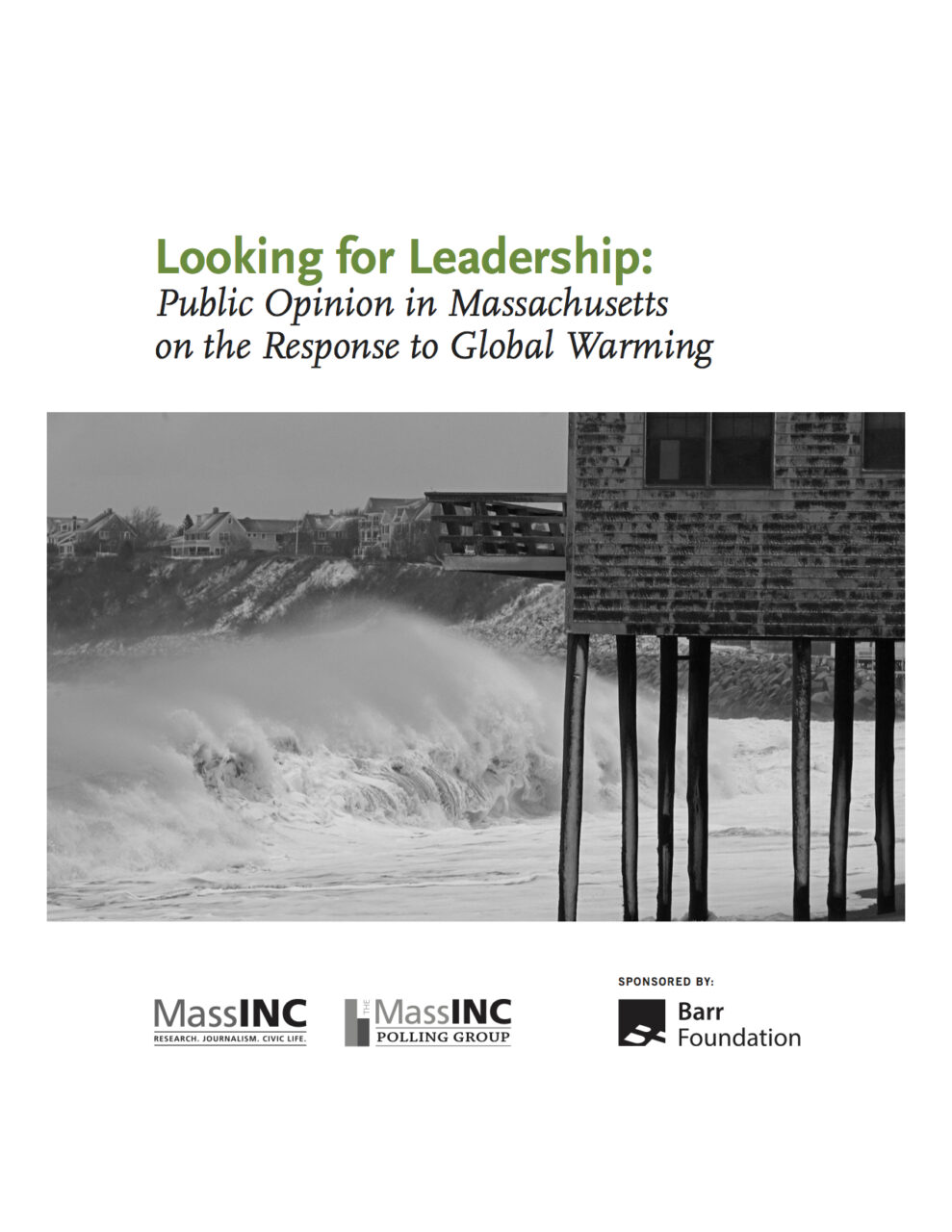Massachusetts residents “strongly support” a wide range of policies to combat and prepare for global warming, including investing in renewable energy and public transit. This support stems from broad belief that the effects of global warming are either already underway, or have already begun, and will be damaging for Massachusetts – three-quarters think Massachusetts will suffer coastal flooding, sea level rise and more extreme storms as a result. Despite their belief and their worry, climate change is still not a top issue in residents’ minds. While four-in-ten think fighting climate change should be a high priority for state government, that figure is far lower than for issues like the economy, education and health care.
“People are willing to pay for policies that attack the problem, even though it’s not top of mind for most,” said Steve Koczela, president of The MassINC Polling Group, who conducted the survey. “There appears to be little to no political downside for leaders who want to take action on this issue, even including some fairly aggressive policy responses.”
Residents support a variety of policy ideas to combat global warming, including some that would require government funding, and they are willing to foot the bill. Nearly three-quarters would pay $5 more a month for energy to reduce greenhouse gas emissions. Almost four-in-ten would be more likely to vote for a candidate who supports aggressive action on global warming; only 12 percent say such a stance would make them less likely.
- A majority (55 percent) strongly support improving the transportation network to reduce car travel, even when they are told this step would require public funding. Overall, 84 percent at least somewhat support investing in transit.
- Residents favor solar (73 percent), wind on land (64 percent) and off-shore (63 percent) and hydroelectric (51 percent) for new energy generation. Half would support new power from natural gas.
- Majorities strongly support stricter efficiency standards for new buildings (65 percent), updating the electric grid for renewable energy (63 percent) and increasing incentives for business and individuals to generate their own renewable energy (55 percent).
- Residents want to prepare for the effects of warming, with majorities strongly supportive of flood-proofing key infrastructure (65 percent), moving vital building systems above ground level (52 percent) and restoring wetlands to act as buffers against flooding (54 percent).
Residents are much more likely to support broader actions than to change their own personal behavior to reduce carbon emissions. As in previous surveys, there seems to be little or no connection between believing in man-made global warming and taking actions such as getting an energy audit, installing solar panels on their home or buying an electric car.
“Residents are definitely worried, but we’re still a long way off from a culture where people change their own behavior to fight climate change,” said Ben Forman, Research Director for MassINC. “At this point, we need to start looking at other ways to motivate people to reduce their own emissions.”
The survey of 1,004 Massachusetts residents reprised some questions from a 2011 MassINC survey on the topic, and found belief in global warming has held remarkably steady since then. The findings are also broadly consistent with national surveys on the belief in warming and support for government action. The survey was conducted last fall, before the historic snowstorms that disabled the MBTA system in February.
Under the 2008 Global Warming Solutions Act, Massachusetts is required to reduce greenhouse gas emissions by 25 percent from 1990 levels by 2020, and by 80 percent by 2050.
About the poll: These results are from a public opinion poll of 1,004 Massachusetts residents conducted September 19-26, 2014. Live interviewers contacted respondents on both landlines and cell phones. The margin of sampling error is +/- 3.1 percent for the statewide sample.
